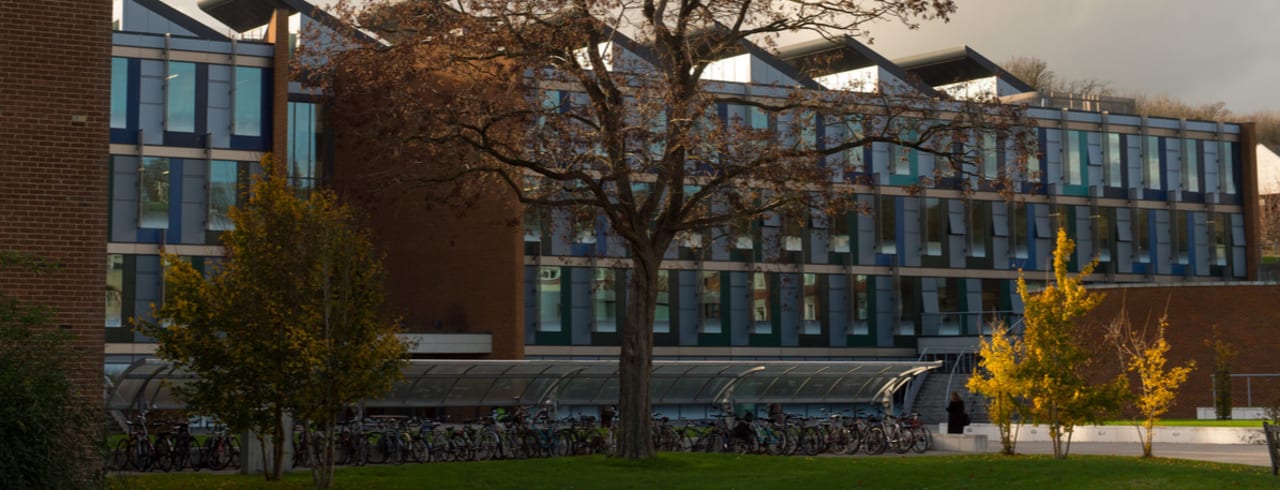
LLM in International Human Rights Law
University of Sussex

Key Information
Campus location
Brighton, United Kingdom
Languages
English
Study format
On-Campus
Duration
1 - 2 Year
Pace
Full time, Part time
Tuition fees
GBP 9,500 / per year *
Application deadline
01 Sep 2024
Earliest start date
Sep 2024
* £9,500/year for full-time home, Channel Islands and Isle of Man students | £18,975/year for full-time international students
Introduction
Many believe international human rights law is one of our greatest moral achievements. However, huge gaps remain between the theory and the practice of human rights implementation.
On this LLM, you’ll gain the intellectual and practical skills to understand human rights issues in many different contexts. You’ll study:
- the interconnections between international human rights law and regional and national systems of human rights protection
- legal texts such as treaties, declarations and case law
- critiques of rights as well as the legal and practical context of contemporary issues and challenges.
Interdisciplinary human rights research is a research strength at Sussex and reflected in our teaching. You’ll engage with our team of established human rights researchers and get involved with the Sussex Centre for Human Rights Research.
At Sussex Law School, you’ll gain a global perspective, and have the chance to network with other activists and practitioners from around the world. These networks will also be valuable after you graduate. You’ll also have the opportunity to apply for the Human Rights Law Clinic option to gain practical insights.
We understand that deciding where and what to study is a very important decision. We’ll make all reasonable efforts to provide you with the courses, services and facilities described in this prospectus. However, if we need to make material changes, for example due to government or regulatory requirements, or unanticipated staff changes, we’ll let you know as soon as possible.
Career Opportunities
On this LLM, you’ll gain the knowledge and skills necessary to pursue and advance within careers in human rights – from legal practice, to advocacy and campaigning, to further research.
Our graduates have gone on to a variety of roles across the world:
- leading human rights law firms
- international NGOs
- government and civil service.
Some of our graduates have also gone on to further study and careers in academia.
Graduate destinations
Recent Sussex Law School graduates have gone on to jobs including:
- legal consultant, Global Rights Compliance LLP
- refugee researcher, Amnesty International UK
- administrative law division intern, United Nations (New York).
(Sussex Law School careers database)
Gallery
Curriculum
Full-time and part-time study
Choose to study this course full time or part time, to fit around your work and personal life. Modules for the full-time course are listed below. For details about the part-time course, contact us.
Core modules
Core modules are taken by all students on the course. They give you a solid grounding in your chosen subject and prepare you to explore the topics that interest you most.
Autumn teaching
- Advanced Legal Research and Writing
- Critiquing International Law
- International Human Rights Law
- Principles of International Law
Spring and summer teaching
Options
Alongside your core modules, you can choose options to broaden your horizons and tailor your course to your interests. This list gives you a flavour of our options, which are kept under review and may change, for example in response to student feedback or the latest research.
While it’s our aim for students to take their preferred combinations of options, this can’t be guaranteed and will be subject to timetabling. Options may be grouped and if so, students will be able to choose a set number of options from the selection available in any particular group.
Spring teaching
- Civil and Political Rights: Contemporary Challenges
- Human Rights Law Clinic
- Human Trafficking and Modern Slavery
- Indigenous and Minority Rights
- International Business and Human Rights
- International Crimes
- Law, Religion, and Human Rights
- LGBTQI Rights: International and Comparative Perspectives
- Migration, Rights and Governance
- Socioeconomic rights: economic violence, social justice and human rights law
- Women and Human Rights
Human Rights Law Clinic
You’ll have the opportunity to apply for the Human Rights Law Clinic option. Selection is based on an application process and the successful completion of the International Human Rights Law core module.
The Clinic gives you the chance to build on law and theory through the preparation of pro bono legal opinions for real clients including international organisations and non-governmental organisations. You’ll gain practical insights by working in a team to produce a research memorandum on a contemporary human rights challenge.
Human rights and the environment
We all depend on the environment we live in. The links between human rights, climate change and the environment are increasingly recognised, and career opportunities in the field are growing rapidly.
On this course, you have the opportunity to choose from a range of options that go beyond the core of international human rights law. This means you can develop an understanding of the international legal frameworks relevant to climate change and the environment. As a graduate, you’ll find yourself at the cutting-edge of the human rights agenda.
We regularly review our modules to incorporate student feedback, staff expertise, as well as the latest research and teaching methodology. We’re planning to run these modules in the academic year 2023/24. However, there may be changes to these modules in response to feedback, staff availability, student demand or updates to our curriculum. We’ll make sure to let you know of any material changes to modules at the earliest opportunity.
We’ll do our best to provide as much optional choice as we can, but timetabling constraints mean it may not be possible to take some module combinations. The structure of a small number of courses means that the order of modules or the streams you choose may determine whether modules are core or optional. This means that your core modules or options may differ from what’s shown here.
Check back in January 2024 for the modules running in the academic year 2024/25.
Admissions
Program Tuition Fee
Scholarships and Funding
Scholarships
Our goal is to ensure that every student who wants to study with us is able to regardless of financial barriers, so that we continue to attract talented and unique people.
Details of our scholarships are not yet set for entry in the academic year 2024/25.
Working while you study
Our Careers and Employability Centre can help you find part-time work while you study. Find out more about career development and part-time work
English Language Requirements
Certify your English proficiency with the Duolingo English Test! The DET is a convenient, fast, and affordable online English test accepted by over 4,000 universities (like this one) around the world.